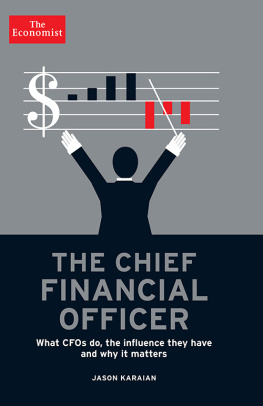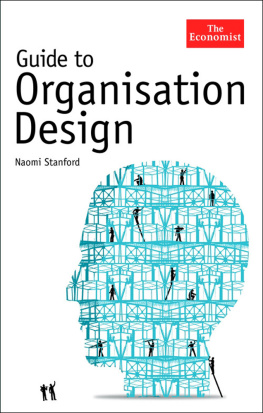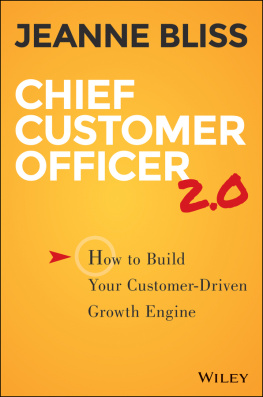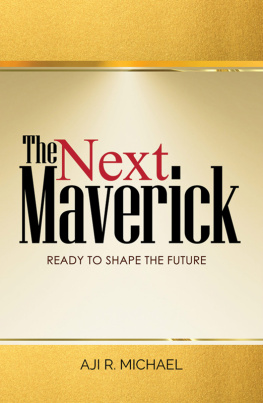THE CHIEF FINANCIAL OFFICER
OTHER ECONOMIST BOOKS
Guide to Analysing Companies
Guide to Business Modelling
Guide to Business Planning
Guide to Cash Management
Guide to Commodities
Guide to Decision Making
Guide to Economic Indicators
Guide to Emerging Markets
Guide to the European Union
Guide to Financial Management
Guide to Financial Markets
Guide to Hedge Funds
Guide to Investment Strategy
Guide to Management Ideas and Gurus
Guide to Managing Growth
Guide to Organisation Design
Guide to Project Management
Guide to Supply Chain Management
Numbers Guide
Style Guide
Book of Business Quotations
Book of Isms
Book of Obituaries
Brands and Branding
Business Consulting
Business Strategy
Buying Professional Services
Doing Business in China
Economics
Managing Talent
Managing Uncertainty
Marketing
Marketing for Growth
Megachange the world in 2050
Modern Warfare, Intelligence and Deterrence
Organisation Culture
Successful Strategy Execution
The World of Business
Directors: an AZ Guide
Economics: an AZ Guide
Investment: an AZ Guide
Negotiation: an AZ Guide
Pocket World in Figures

THE CHIEF FINANCIAL OFFICER
What CFOs do, the influence they have, and why it matters
Jason Karaian
THE ECONOMIST IN ASSOCIATION WITH PROFILE BOOKS LTD AND PUBLIC AFFAIRS
The Chief Financial Officer
What CFOs do, the influence they have, and why it matters
Copyright The Economist Newspaper Ltd,2014Text copyright Jason Karaian, 2014
First published in 2014 by Profile Books Ltd. in Great Britain.
Published in 2014 in the United States by PublicAffairs, a Member of the PerseusBooks Group
All rights reserved.
No part of this book may be reproduced, stored in or introduced into a retrievalsystem, or transmitted, in any form or by any means (electronic, mechanical,photocopying, recording or otherwise), without the prior written permission ofboth the copyright owner and the publisher of this book, except in the case ofbrief quotations embodied in critical articles and reviews. For information, addressPublicAffairs, 250 West 57th Street, 15th Floor, New York, NY 10107.
The greatest care has been taken in compiling this book. However, no responsibility can be accepted by the publishers or compilers for the accuracy of the information presented.
Where opinion is expressed it is that of the author and does not necessarily coincide with the editorial views of The Economist Newspaper.
While every effort has been made to contact copyright-holders of material produced or cited in this book, in the case of those it has not been possible to contact successfully, the author and publishers will be glad to make amendments in further editions.
PublicAffairs books are available at special discounts for bulk purchases in the U.S.by corporations, institutions, and other organizations. For more information, pleasecontact the Special Markets Department at the Perseus Books Group, 2300 ChestnutStreet, Suite 200, Philadelphia, PA 19103, call (800) 810-4145, ext. 5000, or e-mailspecial.markets@perseusbooks.com.
Print ISBN: 978-1-61039-385-0
ebook ISBN: 978-1-61039-386-7
First Edition
10 9 8 7 6 5 4 3 2 1
To Leo and Harriet, a top executive team
Acknowledgements
IN THE COURSE OF REPORTING for this book, I was struck by how often a CFO I spoke to one day became a CEO the next. Or a chairman. Or moved to a different company, in a different country, in a different industry.
Belying its somewhat staid image, the world of the CFO is in constant flux. For this reason, I am grateful to the many finance chiefs who generously gave me their time and put up with my questions; most of them are cited in the text by name.
Special thanks also to Janet Kersnar for her insightful comments on draft chapters and, in general, for passing on her extensive knowledge of the subject. Marie Leone, Barney Southin and Chen Wu went out of their way to help me at various stages of the writing process. Thank you to Daniel Franklin for the introduction and Elizabeth Bramson-Boudreau for the time to delve into this project. At Profile Books, thanks to Stephen Brough for encouragement and to Paul Lewis and Penny Williams for skilful direction and editing.
Most of all, thanks to Daianna: editor, researcher, motivator and much else besides. I could not wish for a better partner, in books and in life.
Jason Karaian
January 2014
Introduction
STRATEGIC PARTNER . Trusted adviser. Devils advocate. There is no single way to describe the role of the chief financial officer. CFOs themselves struggle to provide an answer. What is agreed, however, is that the dismissive stereotype of a mere book-keeper or bean counter no longer applies.
The CFO is the head of the finance department, of course, but in practice this is an excessively narrow view of the roles responsibilities. Only the chief executive wields as much influence within a company. Other functional executives, like the heads of marketing, technology or human resources, do not come close. The heads of regional or divisional business units may sit at the same level in the corporate hierarchy as the CFO, but their remits are more limited in scope.
This book explains who CFOs are, what they do, and why it matters. It details how finance chiefs earned their privileged position and what the future may hold for them. It describes their ever-expanding role, and how they are transforming their departments and revamping their teams to deal with this growing complexity. It examines the relationships that CFOs must forge, both inside and outside their companies, to achieve their goals.
This is intended as a reference for current finance chiefs to enable them to learn the latest thinking from their peers and benchmark their own performance; those looking to build a career in corporate finance; non-financial executives seeking to improve their relationship with the finance department; and service providers banks and accounting and consulting firms, among others that want to get on the good side of the keeper of the corporate chequebook. Many outside the finance department still find it difficult to relate to modern finance chiefs, as outdated notions of their remit persist. To this end, it is crucial to understand their origins, motivations and pressures.
Cash is king
Years ago, when new writers joined the staff of CFO magazine as the author of this book once did they were given a dog-eared memo about how to write for the publication. It included a flippant, but accurate, summary of the roots of the CFO role:
In the beginning, there was cash. Soon, an owner put the cash to work and sought a return. Eventually, keeping tabs on the money seemed like a good idea but the owner had other priorities, namely, finding more ways to make money. Someone was needed to make sure that the owner received his or her due while paying attention to other matters, and the finance profession was born. Since that time, companies have centralised and decentralised, merged and splurged, but fundamentals remain the same. Hence, the finance execs hoary dictum: Show me the money, because I must show it to the owner.
From the pervasive influence of financial markets to the growth of data-driven decision-making, at each step in the evolution of the modern corporation the CFOs skill set has proved uniquely in tune with the times. This suggests that the finance chiefs time in the spotlight will endure.
Next page












